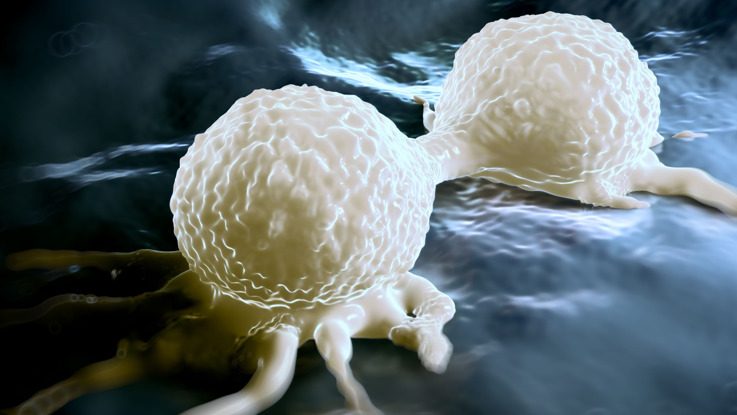
Cancer is a unifying concept for a number of diseases where abnormal cells divide , sometimes uncontrolled and invading other tissues. Cells from malignant tumours can spread to other parts of the body via blood or lymph.
Scientists around the world are seeking to understand the various causes of cancer, and how to prevent, detect, and treat the disease. Today, we know that the properties of cancer cells can be explained by changes in the genes. These mutations can be generated by external factors such assmoking, certain eating habits, or exposure to sunlight or radiation. 5 to 10 percent of cancer cases are estimated to have a hereditary background.
In Sweden, around 50,000 new cases of cancer are detected each year. Cancer treatment includes with surgery, radiation, and pharmaceuticals. The methods of therapy are constantly refined through new research. In parallel medical imaging technologyis developing, allowing tumours to be detected and diagnosed even earlier.
Areas of Research
• Breast Cancer
• Cancer Therapy
• Cancer Biology
• Cancer Genetics
• Liver, Bile Duct, and Pancreatic Cancers
• Skin Cancers
• Leukaemia
• Nursing Care in cancer
• Gastrointestinal Cancer
Learn more about our research by clicking on the respective research activities under the headline "Research".